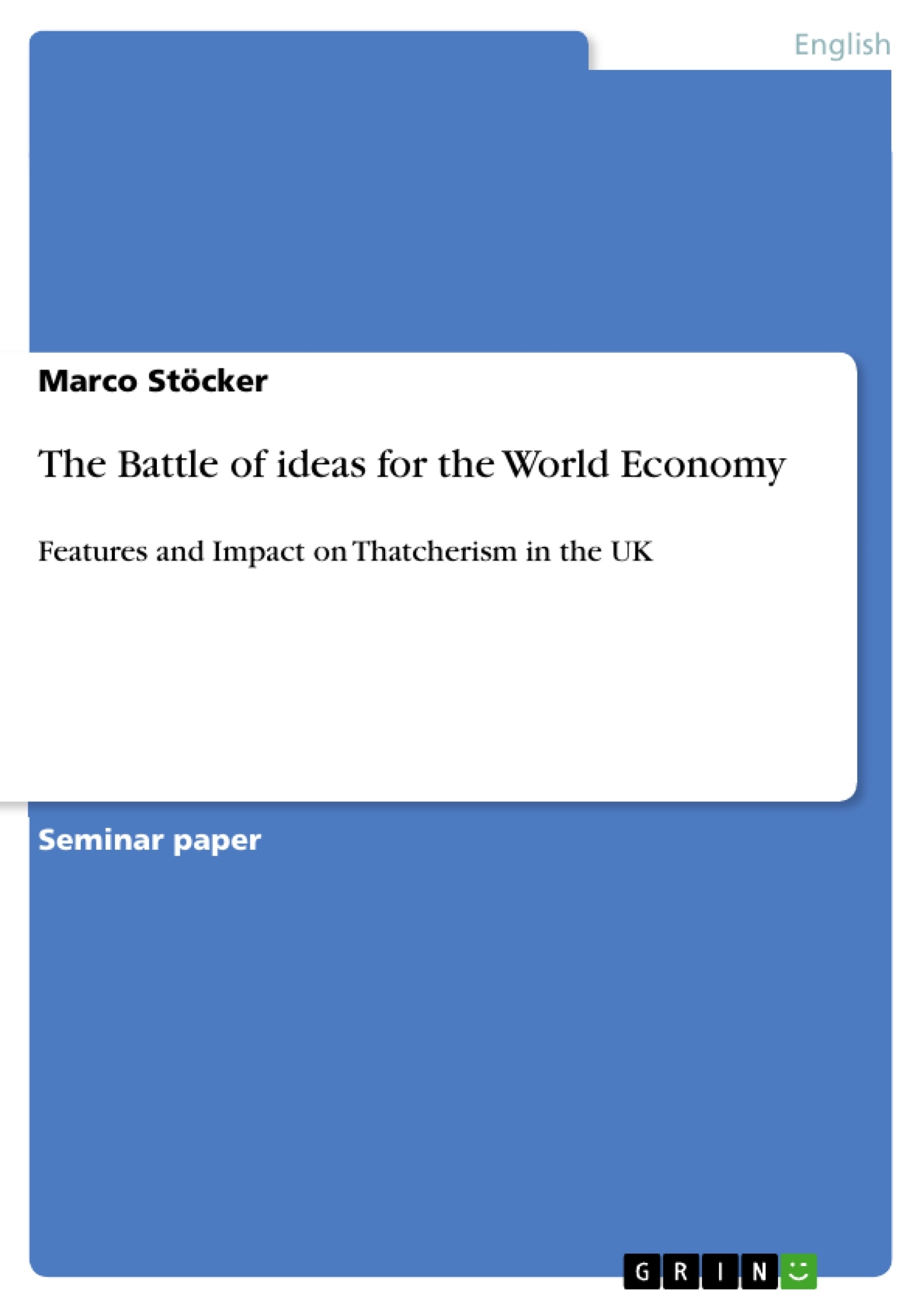This paper is to illustrate the battle for the world economy between the intellectual rivals John Maynard Keynes and Friedrich von Hayek and their influence on the economic policies of Margaret Thatcher. Therefore, I am first going to shed some light on the theories of the two famous economists and their achievements. In a second part, the paper is going to elaborate on the question why Thatcher decided to enforce new economic policies in Britain in spite of contrary opinions of her opponents in the cabinet.
Inhaltsverzeichnis (Table of Contents)
- Introduction
- The Battle of Ideas
- Keynes' Economy
- Keynes' Success
- Keynes' Fall
- The Rise of Monetarism
- Hayek's Road to Serfdom
- Hayek's Theories Unpopular
- Hayek's Breakthrough
- Keynes' Economy
- Thatcher's Ideology
- Thatcher's Monetary Policies
- Problems and Successes
- Britain after Margaret Thatcher
Zielsetzung und Themenschwerpunkte (Objectives and Key Themes)
This paper aims to illustrate the clash of economic ideologies between John Maynard Keynes and Friedrich von Hayek, and their influence on the economic policies of Margaret Thatcher. The paper will analyze the theories of both economists and their achievements, exploring the reasons behind Thatcher's decision to implement new economic policies in Britain, despite opposition from her cabinet.
- The battle of ideas between Keynesian economics and monetarism
- The rise of monetarist thought and its influence on Thatcher's policies
- The impact of Thatcher's economic policies on the UK economy
- The legacy of Thatcher's economic reforms and their continued relevance in the contemporary economic landscape
Zusammenfassung der Kapitel (Chapter Summaries)
The introduction sets the scene by exploring Margaret Thatcher's views on economic liberty and her commitment to free market principles. The chapter highlights Thatcher's admiration for Friedrich Hayek and his influence on her political ideology.
Chapter 2 delves into the "battle of ideas" between John Maynard Keynes and Friedrich von Hayek, examining the context of their intellectual clash in the aftermath of World War I and the Great Depression. The chapter analyzes the key tenets of Keynesian economics, including its focus on government intervention to stimulate demand and manage economic fluctuations. The chapter then explores the rise of monetarism, focusing on Hayek's critique of government intervention and his advocacy for free markets.
Chapter 3 examines Thatcher's economic policies, focusing on her embrace of monetarist principles. The chapter analyzes the successes and challenges of Thatcher's approach, exploring the economic consequences of her policies.
Schlüsselwörter (Keywords)
This paper examines the contrasting economic ideologies of Keynesianism and monetarism, their impact on the UK economy under Margaret Thatcher, and their continued relevance in contemporary economic discourse. Key terms include Keynes, Hayek, monetarism, Thatcherism, free markets, government intervention, economic policies, and the UK economy.
- Quote paper
- Marco Stöcker (Author), 2012, The Battle of ideas for the World Economy, Munich, GRIN Verlag, https://www.grin.com/document/201568




